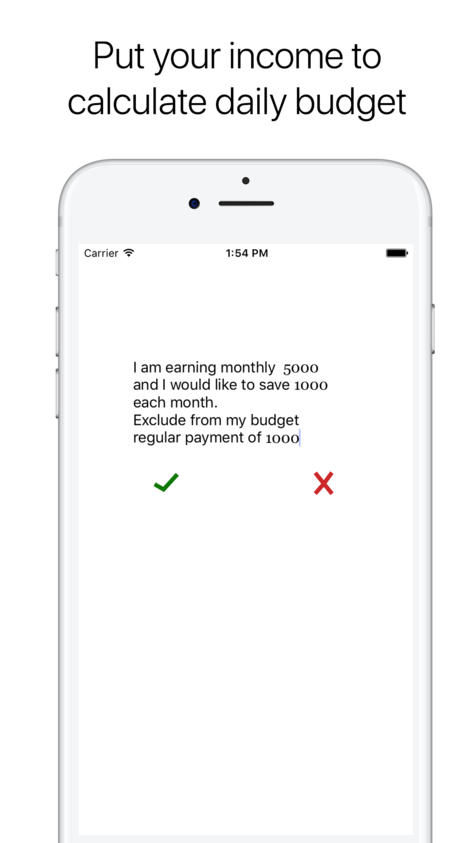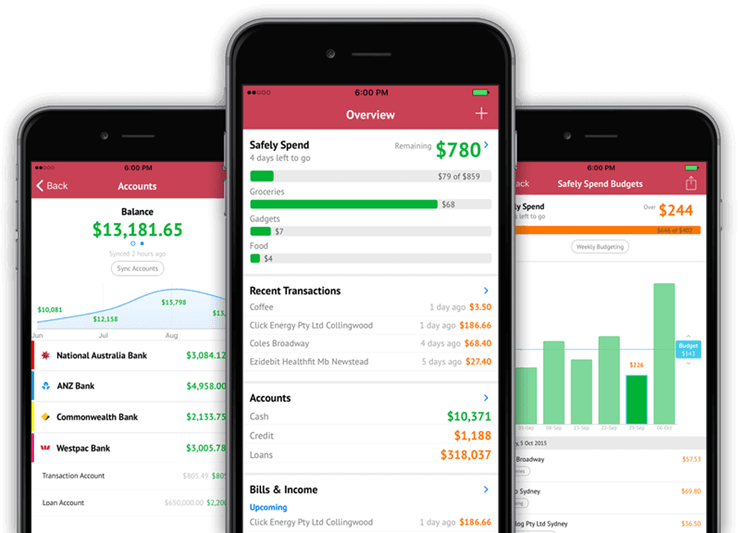Your student years can be the best time of your life, but you don’t want to graduate in (too much) debt if you can help it. We reached out to financial experts to get their top tips on budgeting and staying on budget for students.
Navigate the article
#1 Buy In Bulk!
One can of beans = $1.50 - but for $1.75 you can buy an entire bag of dried beans, which is the equivalent of at least 5 cans. I also order rice in bulk, as well as most other non-perishables. Instacart has great deals on discounted healthy food. Starches are extremely cheap and so delicious. This recipe for flourless sweet potato brownies is both delicious and affordable, and sugar-free/vegan too!
For fresh produce, there is a Korean grocery store near my apartment with really cheap fruit. I think most cities will have some of these - you have just got to find a place where the fruit is reasonably priced. I buy large stocks of these items when they are cheaper in summer and then freeze them. Instead of buying a small pack of frozen berries from your local supermarket when it’s winter, you can dig into your own supplies - this is SO much more economically efficient.
Eat simply. Rice and beans together make a complete protein. This has none of the fat of meat, cheese or dairy (nor any of the cholesterol or acidity) and is also packed with more nutrients, vitamins and finer. Oatmeal is another great option. Beans are amazing! You can use them for anything. I use chickpeas in blondies, white beans in cookie dough, but also for great savoury recipes such as this Moroccan Harira (lemony chickpea-lentil soup). Cook it in large quantities and freeze for a quick meal!
Contributors: Soraya Beheshti from SorayaBeheshti
#2 Budget For Only Areas You Need To Cut Down Spending On
Don't overwhelm and stress yourself out by budgeting for everything. Most of us don't have time for that. Budget for only the areas you need to cut down spending on—even if it's just a couple! That'll help you focus on specific spending habits and increase your chances of succeeding.
Contributors: Tim Yu from Pluto Money
#3 Associate Your Budget To Specific Saving Goals
There's no point of budgeting if you're going to waste the saved money anyways. That's why you should associate your budget to specific saving goals. For example, spend less than your average on eating out this week, save that difference towards your summer trip. It's more motivating!
Contributors: Tim Yu from Pluto Money
#4 Start Paying For Everything With Cash
If you want an effective, simply way to budget without any thrills simply start paying for everything that you can using cash. The psychology behind spending with credit cards makes it too attractive to go over your budget knowing that you can pay it off later, which in turn does nothing but rob your future self of money you could have kept otherwise. When you pay with cash, its harder to part with your money, and you will become more frugal as a result without having to rely on apps of other services that cost your time and money to help you budget.
Contributors: Casey Stubbs from Finance & Markets
#5 Set Reasonable Budgets
We have an AI chatbot personal finance expert here named Charlie who loves giving tips and tricks on budgeting! Charlie has helped over 100,000 users pay off over $50 million dollars in debt.
Here's Charlie's number 1 tip. Set reasonable budgets. Saving and cutting where you need to can be hard if you don’t have an actual goal. Set attainable goals and track your spending -- from eating out, to transportation, to going out, make sure you have an amount in mind. Being aware of your spending habits will help students cut down, and make room for other necessary purchases!
Contributors: Ilian Georgiev from Charlie
#6 Separate Needs From Wants
It may be tempting to create a budget with your needs AND wants in mind. For first time budgeters, students should first determine what they need to spend money on (rent, food, school items, etc.) and what they want to spend money on (activities, entertainment, etc.). The things you need to spend money on should be the first priority when creating a budget. After that, determine what amount of money you want to be saving. Then, see if there is some extra leftover each month that you can put towards things you want to spend money on.
Contributors: Alayna Pehrson from Best Company
#7 Expect The Unexpected
Life tends to throw curveballs and students are definitely not immune to those curveballs. Maybe your professor tells you that you need to purchase a textbook you didn't know about or maybe your car needs a repair. Regardless of what happens, you need to have a portion of money available for unexpected expenses, especially emergencies. When you create your budget, try putting a little money away for a rainy day. You never know when you might need it.
Contributors: Alayna Pehrson from Best Company
#8 Set Priorities
When creating your budget, keep your debts in mind. For instance, you may have a large number of student loans or a car loan you have to pay off. Your budget should be created with these in mind. It should help you save money to pay these loans off. If you have a clear plan of how you will pay these loans off, then you will have a brighter financial future post-graduation. Every little bit counts, so if you can save money each month from budgeting, do so.
Contributors: Alayna Pehrson from Best Company
#9 Actually Track Your Spending
Budgeting isn't just a practice that is reserved for the wealthy. Even if your income is limited while in school, you should make a habit of tracking your spending. All is you need is a simple Excel sheet to monitor your monthly spend on food, alcohol, bills, going out, and other expenses. By tracking your expenses on a month-to-month basis, you can easily track what areas of finance you might need to cut back on. You can also spot trends in your spending habits, and reduce your spending in areas that might be getting out of hand after a few months of additional spending.
Contributors: Tom Blake from This Online World
#10 Pay Credit Card Balance In Full
It's easy to get credit cards, but it's better to delay gratification. It's better to save for what you want, or charge it and pay the credit card balance in full each month.
A good rule of thumb is to try to pay in full each month. If not, it's important not to go over 35 to 50% of your available credit.
Contributors: Tina Jersey from LiveBetterByDesign
#11 Take Advantage of Student Discounts
Students have access to lots of student discounts - both nationally and locally. Your college website may have deals with local businesses. To find out, search for “discounts” on your college website. There are lots of national discounts as well. For example, students can save 50% off Amazon Prime and 10% off Apple and Microsoft products. You can typically qualify with either your school ID or school email account. When shopping, always ask at checkout if they have a student discount!
Contributors: Dawn Shepard from Student Pop
#12 Daily Spending
We earn some money monthly and we spent some amount daily, until in the end of month we realise that all the money is gone. So when I was a student, I came out with a very simple solution how to effectively manage our expenses— you should have a daily limit, which you can’t exceed.
For example: let’s say you are getting 3000USD after all the taxes monthly, you want to save at least 300USD each month, so you can spend 3000 - 300 = 2700USD monthly. You divide this amount on amount of days in current month and get your daily limit: 2700/30 = 90, so you can spend 90USD during one day. This means that whatever you do, you can’t spend more than 90USD daily. If you have spent less, for example 50USD, the 40USD is adding to your next day limit, so you have 90 + 40 = 130 USD to spent next day. If you exceed your daily limit for example for 10 USD, this amount will be deducted from your next day’s limit: 90 - 10 = 80.
So if you want to buy something expensive, you should make a small “savings” from previous days so that your daily budget will be more than 90USD. This method really works and helps you to effectively save money and it is helping me very much, so I decided to make a very simple app, which has been featured by Apple already. It has minimalistic design, and minimum of functionality. No categories, no complex graphics and statistics.
In the end it doesn’t really matter what we spend our money for, which category it is: food, clothes, fun or whatever else. The only one thing that maters is an amount itself— 100, 10 or whatever else. All you have to do is to put your income and how much you want to save monthly, and based on this app is calculating how much is your daily limit. Then you add each of your expense you had during the day— only numbers, no categories.
Contributors: David Lashkhi from Daily Budget
#13 Price Comparison
Understand deals and prices in their historical context and with respect to competing products to genuinely save money on back to school shopping.
For the average shopper this can sound like a daunting task, but it's really quick and easy. You simply need to access accurate price histories and price comparisons of related products. To do that you need to use a price tracker/price comparison combo service that tracks product prices hourly and bundles them together into easy-to-use, interactive price comparison charts. This quickly surfaces big discounts empowering students to make buying decisions that result in genuine savings.
Contributors: David Mercer from SME Pals
#14 Sales Are Worth The Trouble
Especially on the things you need, and even if it means going over budget; because if you can buy your toothpaste at a discount now, and it’s a big discount, you may as well buy enough to last you the year, maybe you’ll never have to buy toothpaste again, think of the money you’ll save. If it’s food remember that you have a freezer and this is the time to use it.
Contributors: Nate Masterson from Maple Holistics
#15 Cook With Dinnerly
DINNERLY is perfect for students who are looking to save some money! Only $5 per meal, making it the most affordable meal kit on the market. Takes away the stress of shopping and planning, and encourages healthy cooking in college dorms. Quick & simple - only 5 steps and maximum 6 ingredients per recipe. Hearty, satisfying recipes college students love like Ginger Chicken, Stir Fry, Grass-Fed Beef Sloppy Joes or Bacon & Onion White Pizza!
Contributors: Steph Busch from Dinnerly
#16 Play Offense and Defense
Budgeting and saving money is the first step in successfully managing your finances and keeping track of your money. However, playing a bit of offense (and earning more income) definitely makes things easier. Don't be afraid to start a side hustle while in school or pick up an extra shift at a part time job when your schedule allows for it.
Contributors: Tom Blake from This Online World
#17 Use A Budget App On Your Smartphone
When you're living on a budget, its best to have it on hand all the time. Apps such as EveryDollar, YNAB and Mint are great for easy access and updates when you need them.
Contributors: Kalen Omo from Kalen Omo Financial Coaching
#18 Accountability Partner
It may take about 3 months to get used to it, but the main goal is to stick to the budget. Have a game plan on 'why' you are doing a budget (for example, graduating debt free), and work with an accountability partner, or parent to keep on the plan. You don't have to walk this road alone.
Contributors: Kalen Omo from Kalen Omo Financial Coaching
#19 Find the Right Bank
College is a crucial time to start developing healthy financial habits, and finding the right bank can help make it easier. Look for a bank that has a local branch and ATMs near you, low fee accounts for students, and online banking so you can easily check your accounts and pay your bills.
Contributors: Leslie H. Tayne from Tayne Law
#20 Get Creative with Your Social Life
Dining and entertainment are one of the biggest threats to your financial well-being in college. No one wants to stop you from having fun and meeting new people, but a little creativity when it comes to your social life can help your budget go a long way. Look for free on-campus events like concerts and sporting events, check out sites like Groupon.com for local deals, or host friends for a game or movie night.
Contributors: Leslie H. Tayne from Tayne Law
This post was created with our nice and easy submission form. Create your post!





















